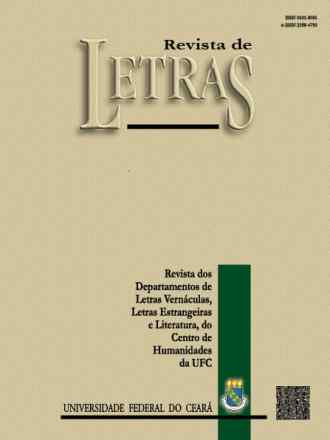O CARÁTER VARIÁVEL DA REGRA DE CONCORDÂNCIA NO PORTUGUÊS DO BRASIL
Revista de Letras
O CARÁTER VARIÁVEL DA REGRA DE CONCORDÂNCIA NO PORTUGUÊS DO BRASIL
Autor Correspondente: D. Moura | [email protected]
Palavras-chave: língua escrita, concordância verbal, variação
Resumos Cadastrados
Resumo Português:
Segundo a ordem Sujeito-Verbo-Objeto (SVO) na língua padrão do Português do Brasil - PB, a concordância verbal é estabelecida entre o sujeito e o verbo. Em nosso estudo sobre o fenômeno da concordância verbal em narrativas infantis, nós encontramos evidências de que, nesse caso, nós temos um fenômeno variável, como foi mostrado em trabalhos anteriores sobre o português falado no Brasil (Naro, 1981; Scherre & Naro, 1991; Scherre & Naro, 1993; Naro & Scherre, 1996; e outros). Para essa análise, nós distinguimos três casos para mostrar o uso da concordância sujeito-verbo: a) o tipo de sujeito afetando o uso da concordância verbal; b) a inversão verbo-sujeito como um fator que tem influência na falta de concordância; c) a distância e a posição do sujeito com relação ao verbo. A partir dos resultados obtidos, procuramos mostrar que a produção das crianças na escrita reflete o caráter variável da regra de concordância verbal no PB.
Resumo Inglês:
According to the order Subject-Verb-Object (SVO) in the standard language of Brazilian Portuguese, agreement occurs between the subject and the verb. In our study of concord phenomenon in the writing of children’s narratives, we found evidence that we have, in this case, a variable phenomenon, as has been shown in previous studies on spoken Brazilian Portuguese (Naro, 1981; Scherre & Naro, 1991; Scherre & Naro, 1993; Naro & Scherre, 1996; and others). For the purpose of this analysis, we distinguish three cases to show the use of subject-verb agreement: a) the type of subject affecting the use of verbal agreement; b) the inversion verb-subject as a factor that has an influence to the lach of agreement; c) the distance and the position of subject with respect to the verb. Starting from results obtained, we will try that the writing of children’s narratives reflects the variable phenomenon of subject-verb agreement in PB

